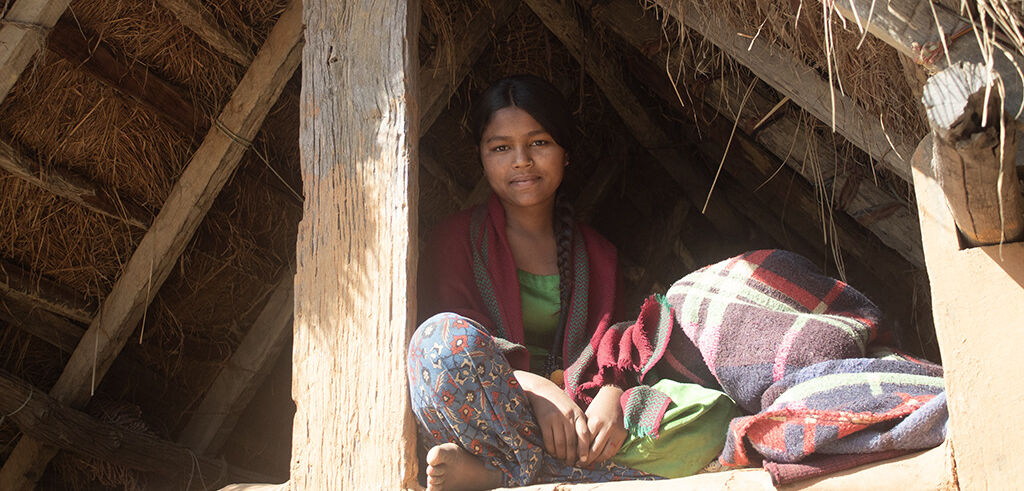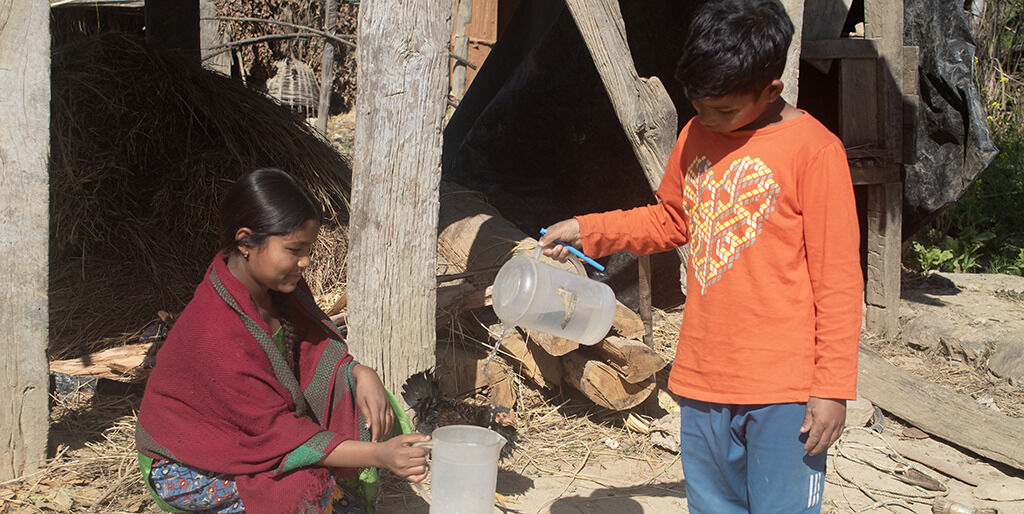
Manisha is only 13 years old, studying in Grade 8. The day she got her first period, when she was 12, was the day she felt fear, shame and panic like never before. It worsened when her elder sister told her that she had to leave home and stay at the menstrual hut outside their house.
She was confused and scared – her mind constantly thinking about how she would sleep alone at night in the hut, how she would concentrate on school without proper sleep for seven days and how to overcome her fears of intruders at night. Even so, she had to stay and sleep in the shed.
Manisha, and many girls and women in her village, live an even more difficult life during menstruation. Manisha cannot eat and drink when she feels hungry and thirsty. She has to wait for someone to bring her food and water. There are restrictions that she should not enter the house, should not sit and sleep in the same bed she used before or will use after menstruation, should not enter the kitchen and use utensils, should not touch drinking water inside the kitchen, should not eat milk or curd, should not touch male members of the family, should not touch cattle, should not touch fruit bearing plants, and the fear of snake bites, and so on. Since she is not allowed to use tap water, stone spouts (channelised water supply used commonly in Nepal), or the neighbourhood well, she has to bathe in the muddy water of a distant irrigation canal.

“In summer, I have to suffer from wind and rain and the fear of snake bites, and in winter, my body shivers with cold, skin goes numb and it is hard to sleep,” says Manisha. “Sometimes there is no one to feed me at home so I have to miss school when I have my period and am hungry, because I have to walk 35 minutes to school.”
Manisha worries about being blamed for bringing bad fortune if she does not strictly follow these menstrual restrictions. She thinks it is better to stay in the menstrual hut even though it is painful than bring bad luck and misfortune to her family. But, she also is of the opinion that the Chhaupadi custom should be changed or eliminated.
Despite the Nepal government’s initiative of banning the practice of Chhaupadi in 2005, followed by the “Chhaupadi Pratha” Elimination Directive in 2008, the menstrual isolation practice still exists in many villages. Along with our in-country partner, we have been working to change mindsets and help families overcome their fear of stopping the practice. Access of adolescents to adolescent sexual reproduction health services is also very important for the overall wellbeing and empowerment of adolescent girls like Manisha. Through this service, they receive information, counselling, and medical support tailored to their needs.
You can help keep girls like Manisha inside their houses when they have their period by donating to our KINDred Sisters appeal.